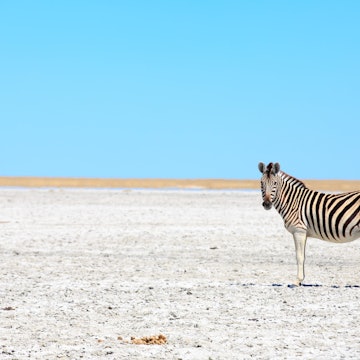

Don't miss out on the beauty of Cape Town because you didn't sort your visa in time © Hello World / Getty Images
Incredible wildlife, world-class beaches and cosmopolitan cities – South Africa has so much to offer that it's no wonder travelers flock there. But it's important to be aware of entry requirements to avoid disappointment upon arrival.
The good news is not all visitors need a visa to enter South Africa for the purposes of tourism or business. Citizens of many countries are on a visa exemption list issued by South Africa's Department of Home Affairs, meaning they are free to visit the country – in many cases for up to 90 days.
That gives you plenty of time to see some of the country's best places to visit, photograph the country’s wildlife, eat biltong and other local dishes, see where two oceans meet, and commemorate Nelson Mandela at the 27 Madiba’s Journey sites.
Here's what you need to know about visas for South Africa and how to get one if you need it.
Lots of travelers don't need a visa to visit South Africa
If you’re traveling with a passport from the US, Canada, the UK and many EU countries, you do not need a visa to visit South Africa as long as your trip is for tourism or business and isn’t more than 90 days. You’ll need to have a ticket showing your return travel exiting South Africa, meet a few passport requirements and, depending on where you’re traveling from, provide other documentation. But keep in mind that requirements can change, and it's important to check before you travel.
Check the visa exemption list for the latest information that fits your passport. It’s also wise to double-check the Republic of South Africa’s website, the South African embassy or consulate site in your country (such as South Africa’s US embassy), as well as the international travel advisory site from your government (like the US State Department) before you purchase your flight as well as shortly before you depart.
Don’t forget that regardless of whether you hold a valid visa or are exempt from needing one, the immigration officer at your port of entry will decide whether you’re allowed to enter the country, how long you’re eligible to stay, and what conditions you must follow.

There is an eVisa system, but it's not working for everyone
Travelers that need a visa can apply online through eVisa South Africa, a system that is currently live for users from some nations, including citizens of Albania, Croatia, Slovakia, India, China and Mexico.
Some visitors will need to apply for a visa at an embassy
If your country isn't currently serviced by the eVisa site, you'll need to apply for a visa at the South African embassy or consulate in your home country. You’ll likely need to go in person and bring a BI-84 form (completed in black ink), two passport-size photos, plus additional documentation. The fee depends on your passport, the type of visa you’re requesting and how long you plan to stay.
There are passport requirements that all visitors to South Africa must fulfill
South Africa’s immigration regulations state that your passport needs to be valid at least 30 days beyond your planned date of departure from the country. However, both airline and immigration officials are known to insist on that validity period being six months. To ensure that you’re not refused boarding on your flight or sent back home as soon as you arrive in South Africa, play it safe and make sure your passport’s expiration date is at least six months after the date you plan to leave the country.
You’ll also need to double-check that you have enough room in your passport. Each entry into South Africa requires you to have two empty pages, and they need to be consecutive. These empty pages need to be the ones marked with “visa” (rather than “endorsements,” “amendments” or “observations”).

Have proof of onward travel, and you might need a yellow fever certificate
Even if you’re exempt from needing a visa, you’ll need to have proof of onward travel showing you won’t be in South Africa more than 90 days. There are also health requirements. South Africa requires proof of yellow fever vaccination, for example, if you’ve been in one of the countries designated by the World Health Organization to be at risk for yellow fever during the 10 days before arriving in South Africa. That includes several African countries such as Kenya, but also Argentina and Panama.
There are several visa types
South Africa has several types of visas, including for visiting family, studying, attending conferences, other kinds of work, medical treatment, a three-day transit visa, visas for those who want to retire in South Africa, and those for people under the age of 25 participating in an exchange program. South Africa’s Department of Home Affairs’ visa website and their VFS.Global site have details for all passport holders.
Overstaying your visa can incur a fine
Visas to South Africa can be extended. Applications and fees can be brought to one of the dozen visa facilitation centers in the country. Fines are enforced for staying beyond your allowable date, including if you’re exempt from needing a visa, so be careful with your travel dates.















